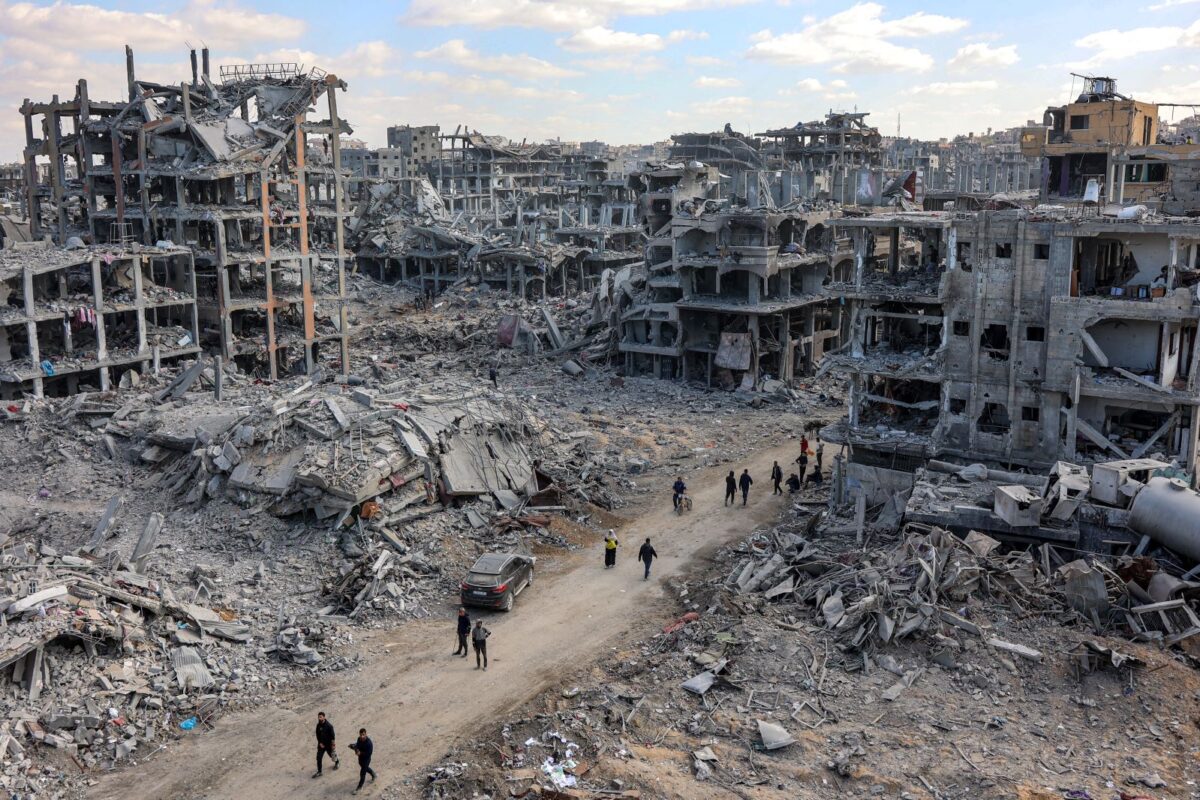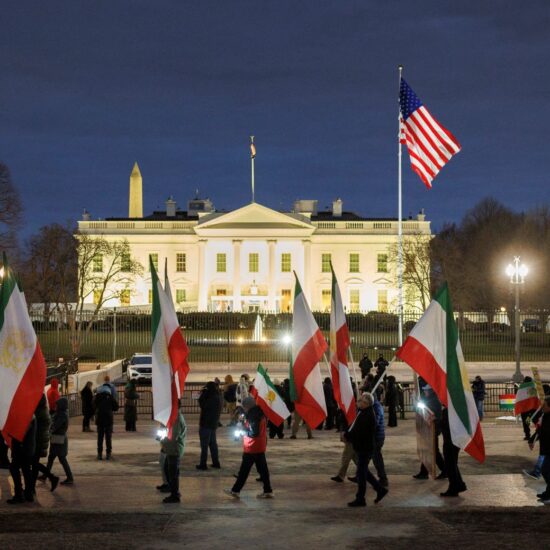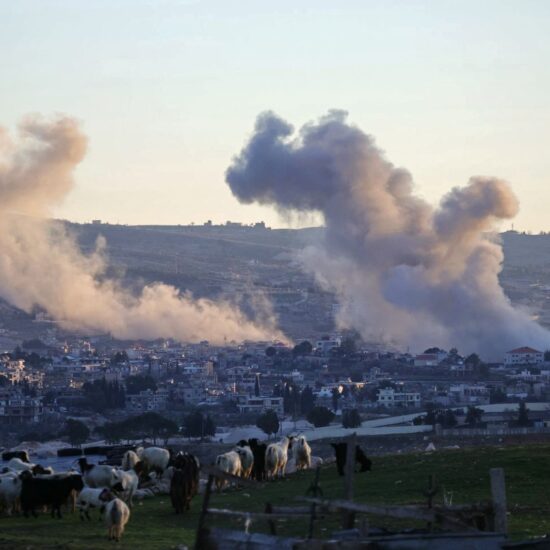
Gaza ceasefire negotiations have set the stage for the release of hostages and prisoners, while Lebanon grapples with political transitions, Israeli violations, security challenges, and international support for its recovery and stability.
A long-awaited ceasefire in Gaza officially took effect on Sunday, signaling a momentous shift in the war that has ravaged Gaza. US President Joe Biden hailed the agreement as a result of months of rigorous diplomatic efforts. In his statement, Biden acknowledged the intensity of the negotiations, calling them among the most difficult since taking office. One of the key provisions of the agreement is the phased release of hostages, including several American citizens, set to be freed in exchange for Palestinian prisoners.
The ceasefire deal, initially proposed by Biden last May, also includes the release of 735 Palestinian prisoners. The first phase of this exchange, which will unfold over the next six weeks, began with the release of 95 prisoners, including 70 women and 25 minors. In return, Hamas is expected to free 33 Israeli hostages, starting with three female civilians, marking a rare moment of relief for the hostages and their families after months of captivity.
The deal was approved by the Israeli government late Saturday, clearing the way for its implementation on Sunday. While the names of the prisoners to be released have been made public, those of the minors have not. As the ceasefire took effect, the guns fell silent in Gaza, giving the beleaguered population a brief respite from months of intense violence.
On the ground, the release of the prisoners brought hope and joy, especially for the Palestinian families who celebrated the return of their loved ones. Thousands of Palestinians, including women and young boys, were freed from Israeli prisons, their return greeted by celebrations in the West Bank. At the same time, three Israeli women held hostage by Hamas since the October 2023 abductions were released and reunited with their families, marking the first signs of a broader hostage exchange.
While the ceasefire offers a break from the ongoing fighting, Gaza remains in a state of devastation. The World Health Organization and other aid groups are poised to deliver critical humanitarian assistance, though the region’s health infrastructure has been severely damaged by the ongoing conflict. Gaza’s population, much of which has been displaced, is facing the daunting task of rebuilding amidst widespread destruction.
In Lebanon
UN Chief optimistic about Lebanon’s future: UN Secretary-General Antonio Guterres expressed hope for Lebanon’s future after meeting new leaders, including President Joseph Aoun and Prime Minister-designate Nawaf Salam. Guterres highlighted a sense of opportunity following Lebanon’s challenging year and announced continued UN support for the country’s recovery.
Lebanon reaffirms commitment to ceasefire: During a meeting with UN Secretary-General Antonio Guterres at Baabda Palace, President Joseph Aoun reaffirmed Lebanon’s commitment to the ceasefire agreement and the Israeli forces’ withdrawal from occupied southern territories by the deadline set on November 27. Aoun criticized ongoing Israeli violations, including airstrikes on homes and the destruction of border villages, which he described as a breach of Lebanon’s sovereignty and contrary to the ceasefire’s intent to restore stability in the region.
Major captagon smuggling operation: The Lebanese Army Intelligence Directorate has successfully raided a major drug operation in Yammoune, Bekaa, seizing 239 bags containing 50 million Captagon pills. The drugs, valued at around $2 billion, were set to be exported to a Gulf country. Acting on intelligence, the raid targeted a warehouse owned by two Syrian traffickers, Amer al-Sheikh and Abu Khaled al-Absi. In addition to the Captagon, authorities also uncovered 8.5 tons of the drug, cannabis, and machinery used for production. The shipment, linked to Syria, was reportedly smuggled through routes controlled by regime officials.
Aoun urges Macron on ceasefire, reconstruction, and energy: Lebanese President Aoun met with French President Macron to discuss stabilizing the South Lebanon ceasefire, addressing Israeli violations, and rebuilding affected regions. Aoun also called for Total Energies to resume oil exploration in Lebanon’s offshore blocks and emphasized the need for Israel’s withdrawal from occupied territories.
Salam meets Norwegian Foreign Minister Eide: Prime Minister-designate Nawaf Salam met with Norwegian Foreign Minister Espen Barth Eide at his residence in Kraytem, accompanied by Norwegian Ambassador Hilde Haraldstad. They discussed regional and international developments. Minister Eide congratulated Salam on his appointment and reiterated Norway’s commitment to supporting Lebanon through its upcoming challenges.
In The Region
The difficult return: As the Gaza ceasefire took effect, hundreds of aid trucks queued to deliver essential supplies to the region’s 2.3 million residents, 90% of whom have been displaced. While the World Health Organization stands ready to assist, it stresses the need for full access across Gaza, where much of the healthcare infrastructure has been decimated. The truce began following a three-hour delay, during which Israeli airstrikes killed 13, including a family traveling home. Thousands of displaced Palestinians have returned to find widespread destruction, with nine out of ten homes, along with schools, hospitals, and other key buildings, reduced to rubble. There is no clear plan for Gaza’s governance or reconstruction.
Threatening to resign: Far-right Israeli Minister Bezalel Smotrich threatened to overthrow the government unless it occupied Gaza, calling the ceasefire a “surrender to Hamas.” His remarks came after the ceasefire began, following a delay over prisoner releases. National Security Minister Itamar Ben-Gvir’s party also withdrew from the coalition, but the government remains intact with 62 seats.
New police in town: In Damascus, 30 HTS fighters have replaced 100 police officers who fled after Assad’s removal, leaving the force severely understaffed. Crime is rising amid growing lawlessness. Former officer Raed Sayed Ali, who joined the rebels in 2011, emphasized the need for security, freedom, and fair salaries. Despite this, some feel safe, as seen during a late-night visit to a mall. The new leadership is focused on rebuilding the police force, with the first batch of new recruits just completing their training.
Rejecting a proposal: Syria’s new defense minister, Murhaf Abu Qasra, stated that the US-backed Syrian Democratic Forces (SDF) should not retain their own military bloc within the Syrian armed forces. He criticized the SDF leadership for procrastinating on the issue. The SDF, which has established a semi-autonomous zone during the civil war, is in talks with the new administration in Damascus. SDF commander Mazloum Abdi emphasized that while the group is open to integration, they seek decentralization and want to maintain their military bloc without dissolution.
What We Are Reading
Towards a new paradigm of governance: Journalist Maan Barazy writes about Lebanon’s urgent need for administrative reform, a key challenge for the new prime minister. Despite efforts by OMSAR, including digitizing civil records, inefficiency and corruption still hinder progress. Barazy sees this crisis as an opportunity for transformative change toward justice, fairness, and economic growth.
Lebanon’s constitution misused: Political psychologist Ramzi Abu Ismail writes about the recent political developments in Lebanon, highlighting the election of General Joseph Aoun as president and Nawaf Salam as prime minister-designate. He critiques the claims of exclusion by Hezbollah and the Amal Movement, noting the irony in their accusations given their history of sidelining others. Abu Ismail underscores how the duo’s actions, including their initial abstention in the presidential vote and insistence on Najib Mikati as premier, contradict their narrative of marginalization. He argues that their discomfort stems from a process that openly challenged their dominance.
Reforming the process: A new vision for the government’s formation: Journalist Khalil Gebara writes about Lebanon’s fleeting optimism following General Joseph Aoun’s election as president and Nawaf Salam’s appointment as prime minister-designate. While Aoun’s inaugural promises of reform and governance renewal sparked hope, it quickly faded as Salam failed to secure support from Shiite MPs, exposing deep divisions rooted in the Taif Agreement that continue to hinder Lebanon’s recovery.
Lebanese hope for stability after the election of new President and Prime Minister: Journalist Rodayna Raydan highlights the swift appointment of a prime minister by President Joseph Aoun as a surprising achievement, offering a rare moment of hope for Lebanese politics. In his inaugural speech, Aoun called for a new era of accountability and lawfulness, resonating with the demands of the 2019 revolution. While his election with 99 votes signaled broad support, Hezbollah’s strategic voting revealed ongoing political maneuvering, prompting mixed reactions among commentators.








